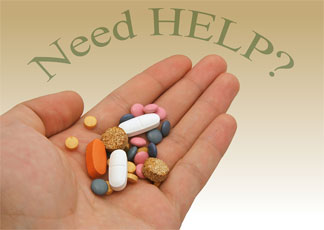Heroin Detox: (800) 315-2391 Heroin Rehabilitation: (888) 565-6401 Heroin Addiction Hotline: (800) 303-2482
Opiate Addiction Treatment Options

Opiate abuse rates have climbed considerably within the past decade with as many as 12 million Americans reporting using prescription pain pills for non-medical purposes in 2010, according to the Centers for Disease Control & Prevention.
Likewise, rates for heroin abuse, another commonly abused opiate, increased from 373,000 to 669,000 active users between the years 2007 and 2012, according to the Substance Abuse & Mental Health Services Administration.
All this is to say, if you or someone you know is considering opiate addiction help, you're not alone. Whether taken for recreational or medicinal purposes, opiate's effects on the brain and body can quickly snowball out of control when taken on a long-term basis. Once addiction sets in, many people remain helpless to turn their lives around without some form of help.
Opiate abuse programs offer a wide range of treatment options designed to meet the needs of each person. Medication therapies, psychosocial treatments as well as several intensities or levels of treatment offer most anyone a means for overcoming addiction's hold on their life.
Opiate's Progressive Effects
Opiate addiction unfolds in stages over time. With ongoing use a person will likely experience the following:
- Increasing Dosage Amounts on a Frequent Basis
- Physical Withdrawal Effects
- Psychological Withdrawal Effects
- Increasing Drug Cravings
- Negative Lifestyle Consequences (Loss of Work, Money Problems, Relationship Conflicts)
Opiate drugs have a chemical make-up that enables them to take over essential brain chemical processes. In effect, the longer a person uses the more dependent the brain becomes on the drug.
By the time addiction takes root, addicts have rearranged their entire lifestyle around getting and using opiates as addiction takes over the body as well as the mind. Opium addiction treatment facilities specialize in helping addicts overcome the physical and mental effects of addiction in their lives.
Opiate Addiction Medication Therapies
Opiate effects on the brain persist long after a person stops using drugs. Long-term opiate use leaves brain cells in a deteriorated state that causes ongoing brain chemical imbalances.
According to the National Institute on Drug Abuse, opiate treatment centers counteract these chemical imbalances with medication therapies. Medications commonly used include:
- Buprenorphine
- Naltrexone
- Methadone
In effect, opiate dependence programs use these medications to support damaged brain functions. In the process, recovering addicts can gain needed relief from persistent drug cravings and withdrawal effects.
Opioid Tolerance Treatment Options
Opioid addiction treatment options can vary in treatment intensity and duration. During the early stages of recovery, detox programs offer round-the-clock care during the withdrawal period.
Residential treatment programs provide ongoing, intensive treatment services where recovering addicts live at the facility for the program's duration. Services offered include:
- Medical Care
- Psychotherapy
- Group Counseling
- 12-Step Support Groups
After completing inpatient treatment, many people enter outpatient programs once they return back home. Outpatient programs offer the same types of services so recovering addicts can pick up where they left off in inpatient care.
While some people may only opt for detox and maybe residential care, the damaging effects of opiates on the body warrant long-term, ongoing addiction treatment.
